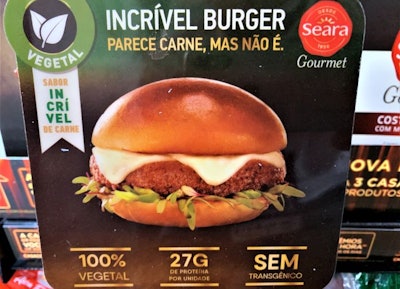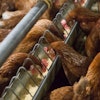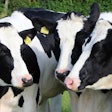
I just visited JBS in São Paulo with a group of international journalists during an event organized by the Brazilian Association of Animal Protein (ABPA).
JBS, owner of Seara, also owns Pilgrim’s Pride, among other brands. Seara has 63,000 employees in Brazil, processing 4.3 million chickens daily in 30 processing plants.
One of Seara’s strategies is innovation, with strict adherence to consumer and buyer trends, backed by research. Among these are consumer health and eating behaviors. By this, I mean flexitarian, veggie and vegan diets. In this area they had a 40% growth rate between 2017 and 2018.
At the “Seara Academy,” we tried their products, and among them was the “Incrível Burger” (Incredible Burger). The incredible hamburger, made from 100% vegetable protein, was created to surprise. “It is perfect for daily life; combines with the lifestyle, without losing the pleasure of eating,” says their marketing materials. It has flavor and texture of meat and is made of soy, beets, wheat, garlic and onion.
Prepared by a chef, the incredible hamburger got to my hands. I bit it, my teeth and tongue crushed and spread it throughout my mouth, and I savored it. I admit, it has good texture and good taste. I’m not sure if I hadn't known, I would have believed it was meat. I do recognize I am biased, but all in all, it was good.
One thing that I did feel was a slight gritty sensation and perhaps a different, indescribable aftertaste. I remember when in the ’80s we started using textured soy protein, mixed with ground meat, or with tuna. There was always something that in the end did not convince me. And I won't even talk about the side effect that soy causes me soon after. It is a little heavy.
As a corollary, I think, what is all this for? I understand Seara's position: it is a business and they look for ways to remain profitable and position themselves in the market. But I’m talking about the consumer: why fool ourselves into saying that we don't eat meat and end up asking for something that looks like it? Why make us believe ourselves that we eat a hamburger that is not?
Could it be that down deep inside, we still have carnivorous instincts? And, in addition, it is ultra processed! Meat is fresher than this.
What do you think?



















